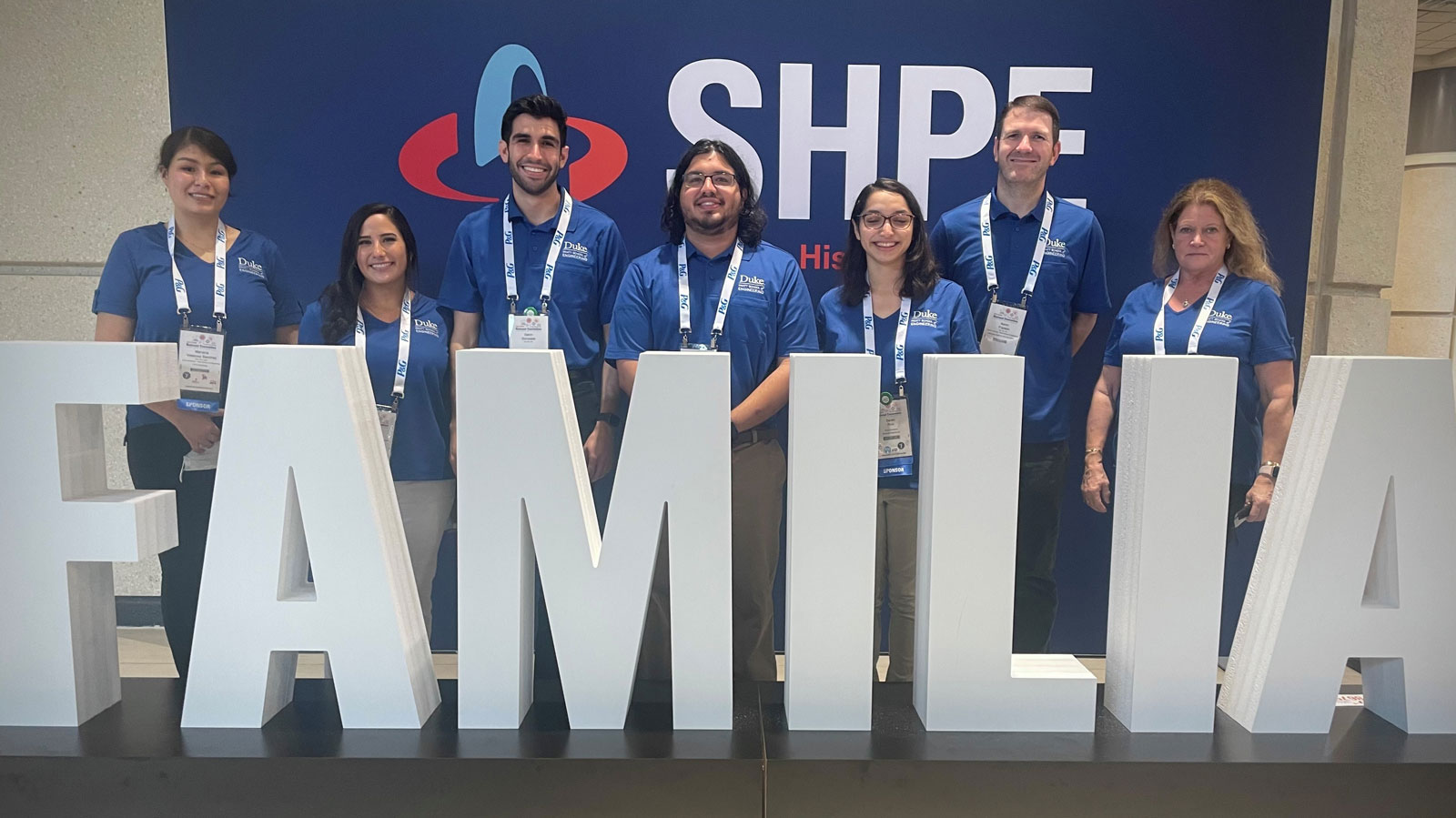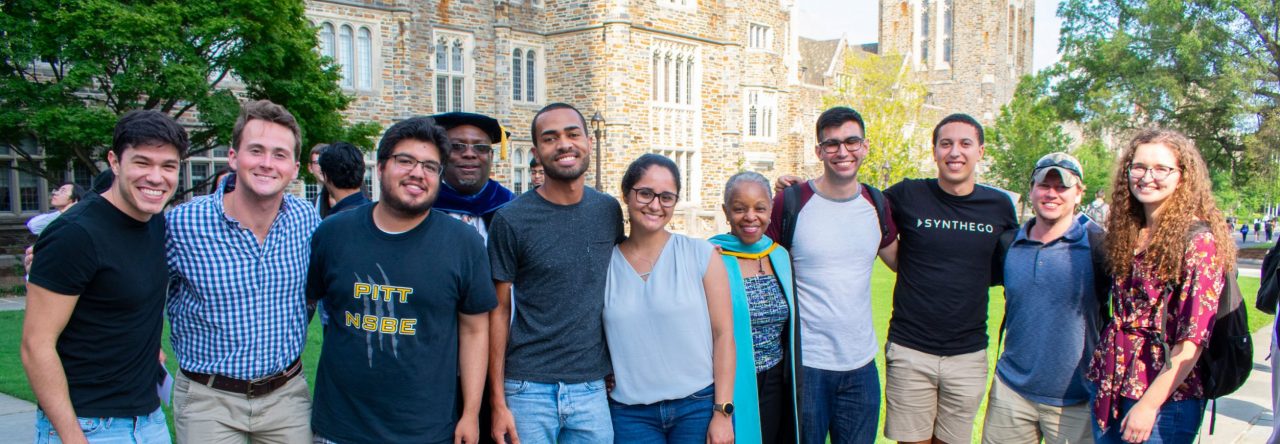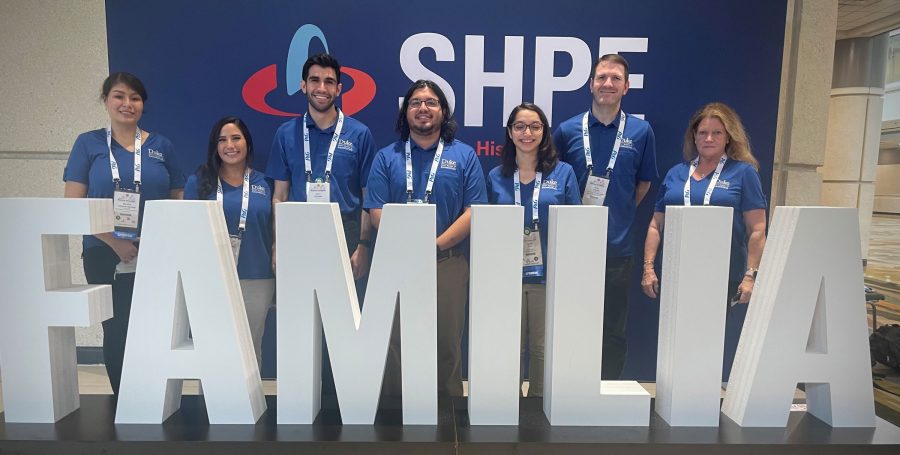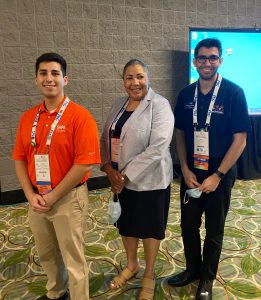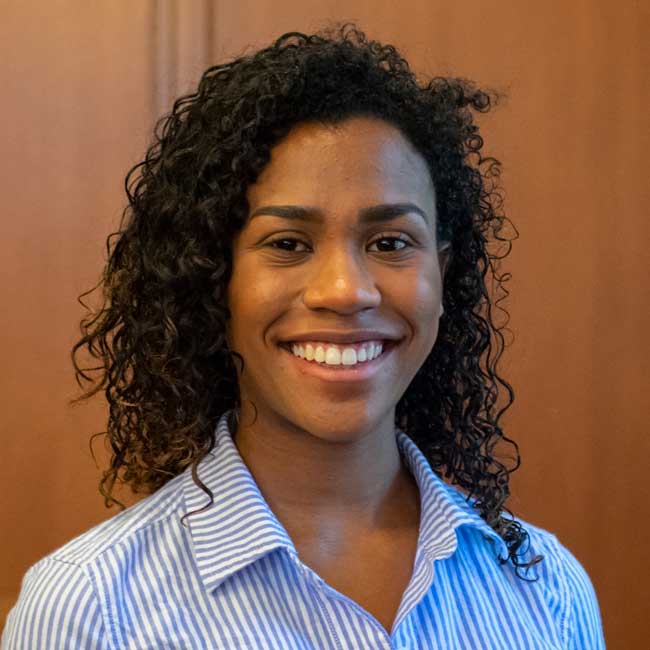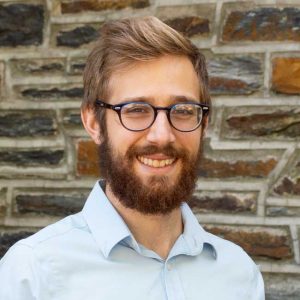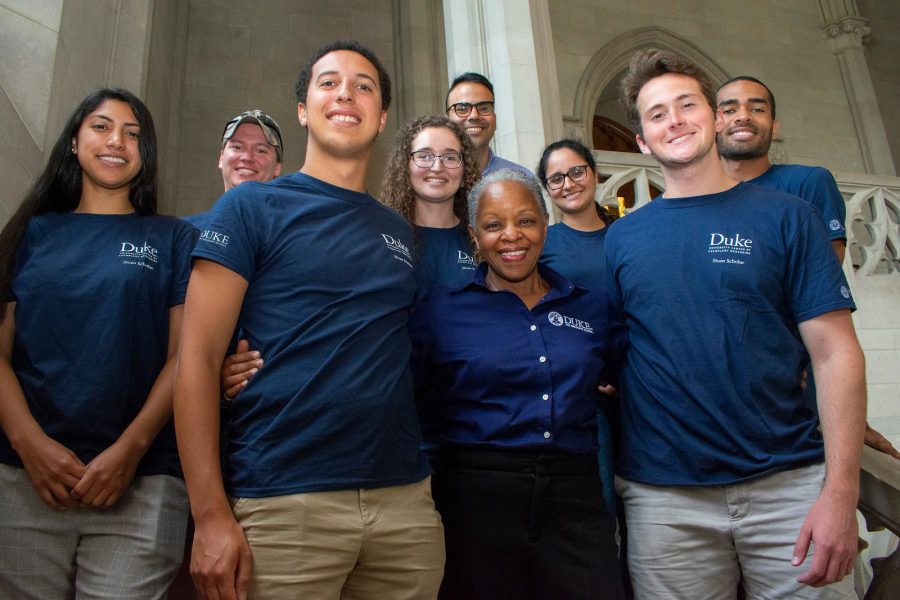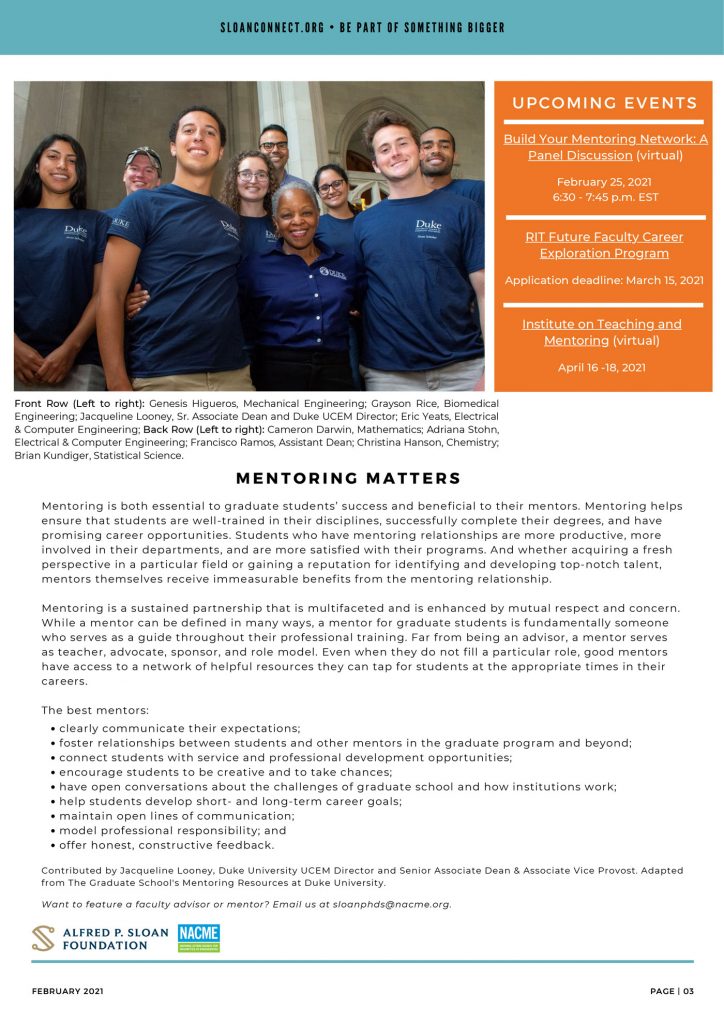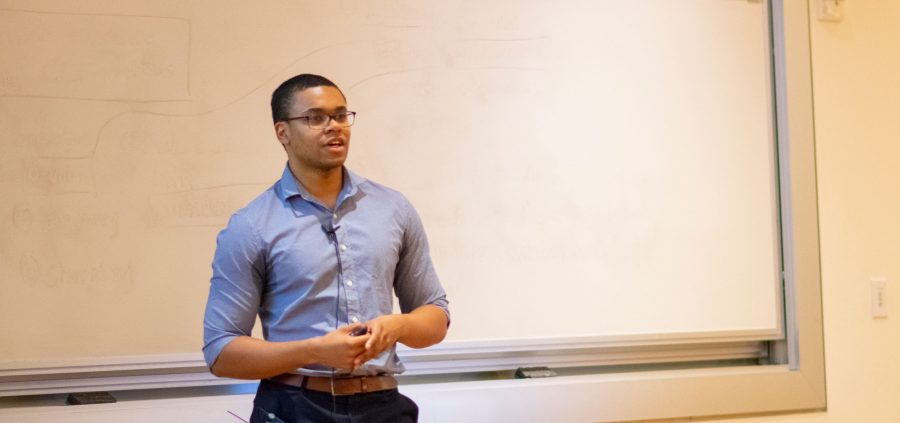The Alfred P. Sloan Foundation will continue to fund a Duke University program to increase the number of underrepresented minority Ph.D. graduates in the physical sciences and engineering, approving a three-year, $1 million grant renewal.
The grant, supplemented by funding from Duke’s Office of the Provost and The Graduate School, will support the University Center of Exemplary Mentoring (UCEM) at Duke, one of eight such centers in the country.
“We are very grateful for the Sloan Foundation’s continued support and encouragement for this critical effort,” said Duke Graduate School Dean Paula D. McClain, one of the co-principal investigators for the Duke UCEM. “This funding will help us build on the momentum that has been generated in the UCEM’s first three years and keep working toward making Duke a more diverse, inclusive community.”
In its first three years (2017-2020), the Duke UCEM met its goal of recruiting 30 Sloan Scholars into Ph.D. programs in chemistry, computer science, mathematics, physics, statistical science, biomedical engineering, civil and environmental engineering, electrical and computer engineering, and mechanical engineering and materials science. Sloan Scholars receive scholarships to support their academic progress and enrichment. The UCEM also creates robust programming and support networks to advance their academics, mentoring, professional development and well-being.
“One of the guiding principles of this initiative has been that we cannot stop at just recruiting more underrepresented students to Duke; we have to make sure they are supported during their time here,” said Calvin Howell, a professor in physics and the UCEM’s other co-principal investigator. “So we have been very intentional about developing resources, building a support infrastructure, and identifying individuals to provide multiple layers of mentoring for our Sloan Scholars.”
That work has been a joint effort by The Graduate School, the Office of the Provost, Counseling and Psychological Services, and the nine affiliated Ph.D. programs (soon to be 10 with the addition of the University Program in Material Science and Engineering this year). The UCEM’s day-to-day operation is led by Graduate School staff in close collaboration with faculty champions and directors of graduate studies in each program.
The center’s work has benefitted students and programs beyond just those directly affiliated with the UCEM, said Senior Associate Dean Jacqueline Looney, the Duke UCEM director.
For instance, the UCEM has helped The Graduate School make important enhancements to its holistic admission process, and has held workshops that were open to students, faculty, and staff from other STEM programs. Various elements of the UCEM’s work have also served as models for components of other Duke efforts to better support students from a diverse range of backgrounds.
“The first three years of the UCEM have been encouraging because of the progress we have made, humbling because of the insights we have gained about the significant work that remains, and invigorating because of the enthusiasm from the faculty, staff, and administrators involved with the program,” Looney said. “They recognize how important this work is to building a better university and strengthening Duke’s scientific research, and they are committed to doing the work.”
The Alfred P. Sloan Foundation is a philanthropic, not-for-profit grantmaking institution based in New York City. Established in 1934 by Alfred Pritchard Sloan Jr., then-president and chief executive officer of General Motors, the foundation makes grants in support of original research and education in science, technology, engineering, mathematics (STEM) and economics. This grant was made through the foundation’s Diversity, Equity & Inclusion program, which aims to increase the quality, diversity, inclusion, and equity of higher education in STEM fields.
The Duke Graduate School provides research-based graduate training that prepares students to thrive and lead in a wide variety of professions. Its 2,500 Ph.D. students and 1,000 master’s students are enrolled across more than 80 programs, where they work closely with more than 1,300 graduate faculty members in small, collaborative research settings, pushing academic boundaries, offering fresh perspectives in research approaches and giving voice to emerging fields.
